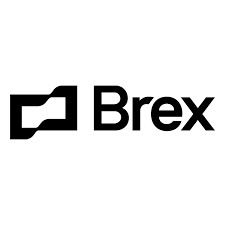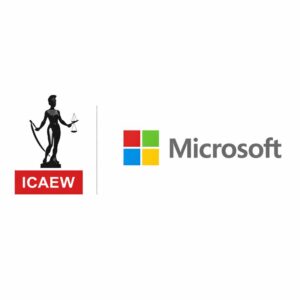Payroll Technology in Accounting Firms: Efficiency, Intelligence, and the Human Shift

Accounting firms are undergoing a major transformation in how they deliver payroll services. What used to be a manual, repetitive task is now increasingly digital, automated, and intelligent. Payroll technology is no longer just about compliance. It is now central to client satisfaction, operational efficiency, and data-driven decision-making.
The New Payroll Infrastructure
Most firms are shifting from spreadsheets and legacy systems to modern cloud-based payroll platforms. Tools like Xero Payroll, BrightPay, Sage, and Paycircle are leading this evolution. These platforms integrate payroll with accounting systems, HR software, and time-tracking tools.
They allow for automated payslip generation, tax updates, employee self-service, and real-time processing. Clients and employees can view documents, request changes, and access reports without waiting on the payroll team. For firms managing many payrolls, bulk processing and exception tracking are now standard features.
Cloud payroll also brings easier integration. Direct connections to banks, pension providers, and HMRC reduce the risk of late filings or data mismatches. Real-time syncing makes monthly submissions smoother and more accurate.
AI and Automation in Payroll
AI is changing how payroll is managed. Chatbots are one example. They handle employee questions such as “When is payday?” or “Can I get a copy of my payslip?” without any need for human intervention. EY recently piloted a chatbot for payroll support using ChatGPT and saw a 93% first-time answer rate.
Beyond chatbots, AI can flag duplicate payments, missing pension contributions, or sudden pay spikes. These systems learn from patterns and highlight risks before mistakes occur. That helps reduce errors, save money, and maintain compliance.
Onboarding has also become faster. Some platforms use document scanning and OCR to pull key information from ID documents or forms. This speeds up data entry and reduces errors when enrolling new employees into the payroll system.
Real-Time Compliance and Regulatory Change
UK firms need to keep pace with changing regulations. RTI remains the core compliance requirement for PAYE submissions. Firms must report payroll data every pay cycle. Technology helps here with scheduling, error-checking, and integration with HMRC.
By April 2026, most benefits-in-kind will need to be included in payroll. This shift is part of HMRC’s wider digitization agenda. Accounting firms must upgrade payroll systems and train staff accordingly. Platforms that calculate BiK taxes automatically and apply them to employee payslips each cycle will be in demand.
HMRC has dropped its plan to require detailed hours reporting. Despite this, pressure remains to submit accurate and timely payroll data every month. Automation helps here too with smart scheduling, automated reminders, and real-time compliance checks built into leading platforms.
Clients Expect More
Clients no longer view payroll as a behind-the-scenes function. They want real-time updates, dashboards, and alerts. Many also want integrated systems where HR, accounting, and payroll communicate smoothly. These expectations are driving firms to upgrade their offerings.
Some accounting firms now offer payroll bundled with bookkeeping and compliance. Payroll data is becoming a source of insight. Trends in sick leave, overtime, or rising pay costs can feed into broader advisory conversations.
AI analytics can help firms deliver predictive alerts. If a client’s payroll costs jump 20% in one month, that triggers a warning. Firms that offer this kind of service are seen as proactive and strategic.
People Are Still Central
AI and automation do not remove the need for skilled payroll professionals. They change the work but do not replace it. Payroll teams now focus more on reviewing anomalies, advising clients, and interpreting results from automated systems.
New roles are emerging. Payroll analysts, automation leads, and data quality specialists are becoming more common. Staff are being trained to work with AI tools and client-facing dashboards.
Human review is still needed. AI can spot inconsistencies, but people are better at understanding complex scenarios or dealing with sensitive employee issues. The goal is not to replace people but to free them from low-value tasks.
Adopting Payroll Tech
Transitioning to a new payroll platform takes planning. Migrating data, choosing the right vendor, and training staff are critical steps. Each platform has different strengths. Some work best for small firms. Others are built for large bureaus with hundreds of payrolls.
Change management is often the hardest part. Some staff may resist new systems. Others may struggle with automation or lose confidence in their role. Clear training and good internal communication help firms get past these hurdles.
Integration is another challenge. Payroll software needs to work with practice management tools, document storage, and client accounting systems. Poor integration creates friction and slows down service delivery.
The Future of Payroll Technology
Looking ahead, payroll platforms will become even more intelligent. We can expect AI to take on more decision-making tasks. Automated audits, instant tax updates, and natural language interfaces will become standard.
APIs will continue to drive integration across systems. Employee apps will offer more features and insights. Firms that invest early will benefit from lower costs, faster turnaround, and stronger client relationships.
Some firms are exploring blockchain for payroll validation and smart contracts. While still early, this idea is gaining attention, especially for firms with cross-border or complex payroll needs.
Conclusion
Payroll technology is transforming the accounting landscape. Firms that embrace AI, automation, and cloud tools are becoming faster, more accurate, and more valuable to clients. The human element remains critical. Payroll professionals are evolving from data entry roles to strategic advisors. This shift is not just a tech upgrade. It represents a change in how firms think about payroll as a service and a growth opportunity.





